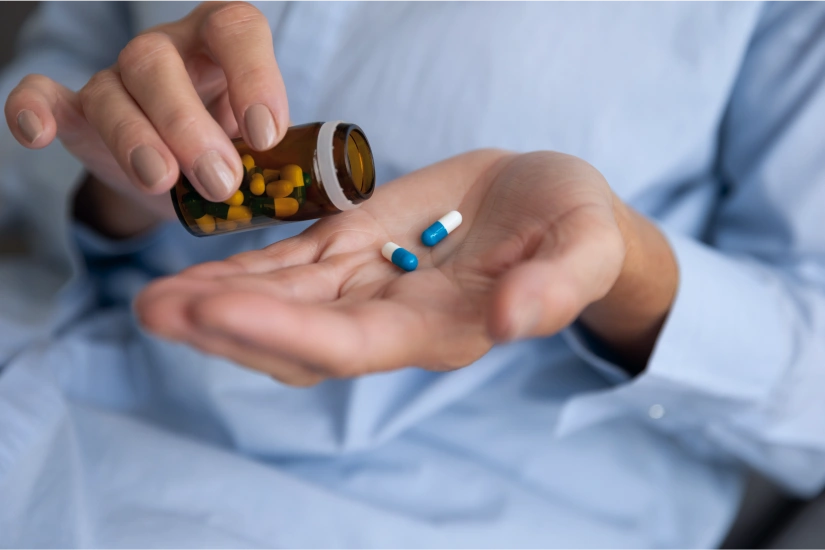24/7 Helpline:
(866) 899-111424/7 Helpline:
(866) 899-1114
Other Insurance Options

Aetna

Group Health Incorporated

Excellus

Highmark

Regence
Beacon

Ambetter

Absolute Total Care

State Farm

Horizon Healthcare Service

MVP Healthcare

Holman Group

Sliding scale payment assistance

Oxford

BHS | Behavioral Health Systems

Choice Care Network

PHCS Network

Health Choice

ComPsych

American Behavioral

Olalla Recovery Centers – Gig Harbor Counseling
Olalla Recovery offers an outpatient program that provides confidential, thorough comprehensive asse...




Lakeside Milam Recovery Centers – Outpatient
Lakeside Milam Recovery Center at Tacoma, Washington is an intensive outpatient facility that provid...

Bayview Recovery Center
Bayview Recovery Center is a private rehab located in Tacoma, Washington. Bayview Recovery Center sp...

Multicare Behavioral Health
Multicare Behavioral Health is a private rehab located in Tacoma, Washington. Multicare Behavioral H...

Puyallup Tribal Treatment Center
Puyallup Tribal Treatment Center is a private rehab located in Tacoma, Washington. Puyallup Tribal T...

Alta Counseling and Testing
Alta Counseling and Testing is a private rehab located in Tacoma, Washington. Alta Counseling and Te...

Greater Lakes Mental Health Foundation – Independence Inn
Greater Lakes Mental Health Foundation – Independence Inn is a private rehab located in Spanaway, Wa...

Mom’s and Women’s Recovery Center
Mom’s and Women’s Recovery Center is a private rehab located in Tacoma, Washington. Mom’s and Women’...

Metropolitan Development Council
Located in Tacoma, Washington, Metropolitan Development Council is a drug and alcohol rehab that sup...

New Freedom Recovery Center
New Freedom Recovery Center provides all levels of outpatient care for individuals with substance ab...

A Change Into Recovery
A Change Into Recovery is a private rehab located in Puyallup, Washington. A Change Into Recovery sp...

Social Treatment Opportunity Programs – STOP
Social Treatment Opportunity Programs (STOP) is a state licensed Nationally and Internationally accr...

HopeSparks – Tacoma
HopeSparks – Tacoma is a private rehab located in Tacoma, Washington. HopeSparks – Tacoma specialize...

Sea Mar Community Health Centers
Sea Mar Community Health Centers - South 19th Street is a community mental health agency accredited ...

MultiCare Behavioral Health
MultiCare Behavioral Health is a private rehab located in Puyallup, Washington. MultiCare Behavioral...

MDC Substance Abuse Services
MDC Substance Abuse Services, in Tacoma, Washington, provides mental and behavioral health care serv...

Sea Mar Tacoma Adult Inpatient Treatment Center
Sea Mar Tacoma Adult Inpatient Treatment Center is an alcohol and drug rehabilitation center located...

Prosperity Wellness Center
The Prosperity Wellness Center is situated in Tacoma, WA, and specializes in treating drug and alcoh...

Lakeside Milam Recovery Centers – Outpatient
Lakeside Milam Recovery Center at Puyallup, Washington is an intensive outpatient facility that prov...

Remnant House – Ministries
Remnant House – Ministries is a private rehab located in Tacoma, Washington. Remnant House – Ministr...

Casteele Williams and Associates
Casteele Williams and Associates is a private rehab located in Tacoma, Washington. Casteele Williams...

MultiCare Health System – MultiCare Behavioral Health
MultiCare Health System – MultiCare Behavioral Health is a private rehab located in Puyallup, Washin...

Sea Mar Community Health Centers
Sea Mar Community Health Centers - 101st Avenue Court is a community mental health agency accredited...

New Connections – Irma’s House
New Connections - Irma's House is located in Tacoma's Hilltop neighborhood. New Connections - Irma's...

Pierce County Alliance
Established in 1994 in cooperation with the Pierce County Superior Court, County Prosecutor, and the...

Alternative Counseling
Alternative Counseling is a private rehab located in Spanaway, Washington. Alternative Counseling sp...

Consejo Counseling & Referral Service
Consejo Counseling & Referral Service provides culturally competent mental health, substance abuse t...





















































































































































































































































































































































































































































































Foundation for Living
Foundation for Living is a private rehab located in Tacoma, Washington. Foundation for Living specia...

Fort Lewis Army Substance Abuse Program – ASAP
Fort Lewis Army Substance Abuse Program – ASAP is a private rehab located in Tacoma, Washington. For...

Comprehensive Life Resources
Comprehensive Life Resources is a private rehab located in Tacoma, Washington. Comprehensive Life Re...

Comprehensive Mental Health Center – Adult Services
Comprehensive Life Resources (CLR) stands as a dual-diagnosis treatment center in Tacoma, WA. It pro...

Affirmation Counseling Service
Affirmation Counseling Service is a private rehab located in Tacoma, Washington. Affirmation Counsel...

AA – Alcoholics Anonymous – Information Center
AA – Alcoholics Anonymous – Information Center is a non-profit rehab located in Tacoma, Washington. ...

Greater Lakes Recovery Center
Greater Lakes Recovery Center is a co-occurring substance use disorder rehab facility based in Tacom...

Western Washington Alcohol Center
Western Washington Alcohol Center is a private rehab located in Tacoma, Washington. Western Washingt...

Crossroads
Crossroads is a private rehab located in Tacoma, Washington. Crossroads specializes in the treatment...

Action Association Counseling Services Tacoma
Action Association Counseling Services Tacoma is a private rehab located in Tacoma, Washington. Acti...

Reflections Recovery and Learning Center
Reflections Recovery and Learning Center is a private rehab located in Tacoma, Washington. Reflectio...

Community Counseling Institute
Community Counseling Institute is a private rehab located in Tacoma, Washington. Community Counselin...

Pioneer Counseling – Tacoma Clinic
Pioneer Counseling – Tacoma Clinic is a non-profit rehab located in Tacoma, Washington. Pioneer Coun...

Griffin and Griffin Behavioral Health
Griffin and Griffin Behavioral Health is a private rehab located in Tacoma, Washington. Griffin and ...

A Avenue of Recovery
A Avenue of Recovery is a private rehab located in Tacoma, Washington. A Avenue of Recovery speciali...

Foundation for Multicultural Solutions – El Camino Program
Foundation for Multicultural Solutions – El Camino Program is a non-profit rehab located in Tacoma, ...

Grace Recovery Centers
Grace Recovery Centers is a private rehab located in Tacoma, Washington. Grace Recovery Centers spec...

Horizon Treatment Services
Horizon Treatment Services is a private rehab located in Tacoma, Washington. Horizon Treatment Servi...

Dotter’s Counseling Service
Dotter’s Counseling Service is a private rehab located in Puyallup, Washington. Dotter’s Counseling ...

PLU Couple Family Therapy Center
PLU Couple Family Therapy Center is a private rehab located in Tacoma, Washington. PLU Couple Family...

Champions Recovery Alternative Program
Champions Recovery Alternative Program is a private rehab located in University Place, Washington. C...

Horizon Treatment Services
Horizon Treatment Services is a private rehab located in Puyallup, Washington. Horizon Treatment Ser...

Transitions Limited
Transitions Limited is a private rehab located in Tacoma, Washington. Transitions Limited specialize...

Adonai Counseling and Employment
Adonai Counseling and Employment is a private rehab located in Tacoma, Washington. Adonai Counseling...

A Change Counseling Services
A Change Counseling Services is a private rehab located in Tacoma, Washington. A Change Counseling S...

Social Treatment Opportunity Programs – STOP
Social Treatment Opportunity Programs (STOP) is a state licensed Nationally and Internationally accr...

HopeSparks – Puyallup
HopeSparks – Puyallup is a private rehab located in Puyallup, Washington. HopeSparks – Puyallup spec...

Center for Discovery Tacoma
Center for Discovery Tacoma is a private rehab located in Tacoma, Washington. Center for Discovery T...

DiscoveryMD – Tacoma
Formerly Dan Med TMS, the DiscoveryMD center in Tacoma, Washington, provides comprehensive services ...

Sea Mar Community Health Centers – Parenting in Recovery Program
Sea Mar Community Health Centers - Parenting in Recovery Program provides services to parents who ar...



































































































































































